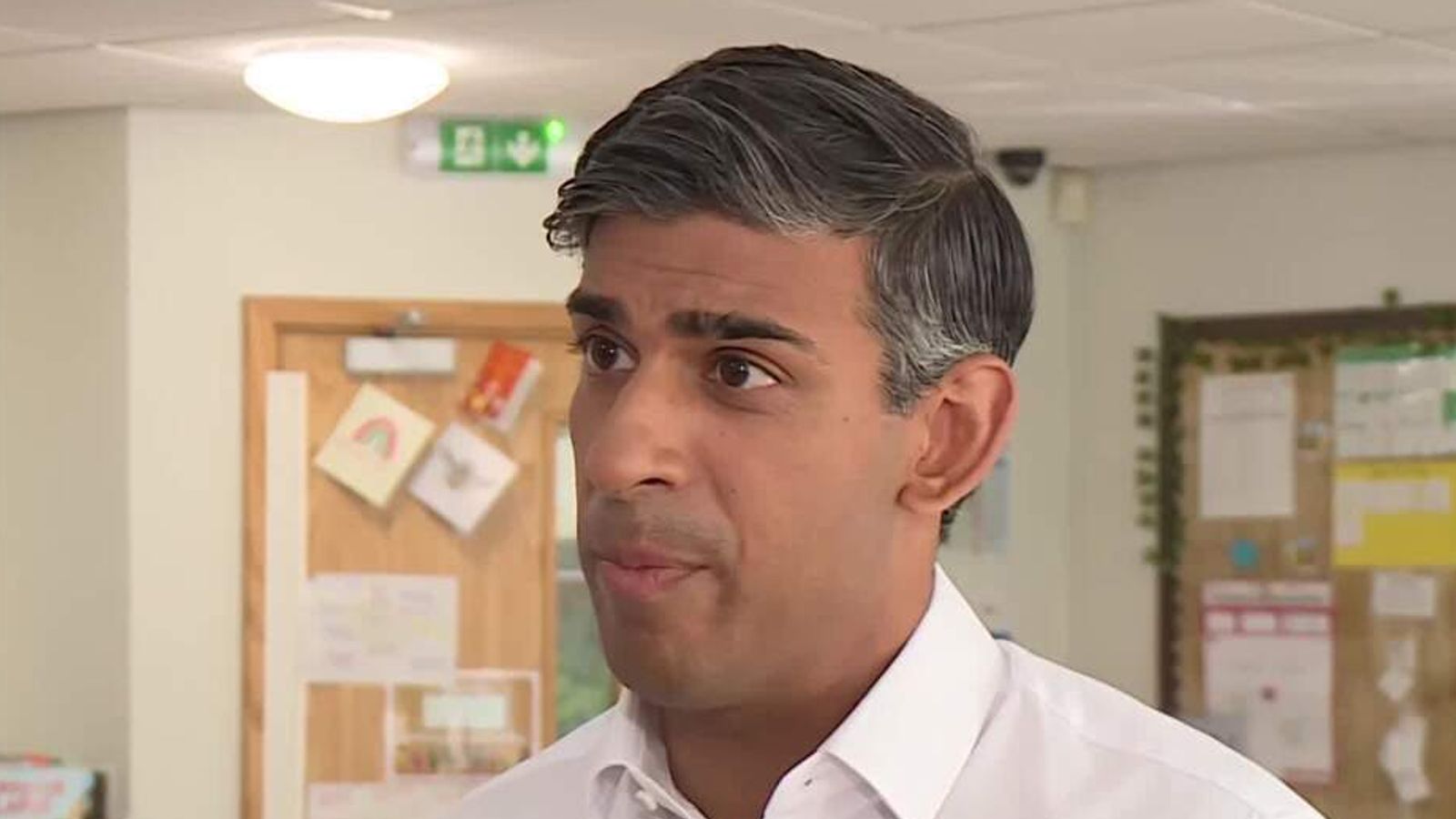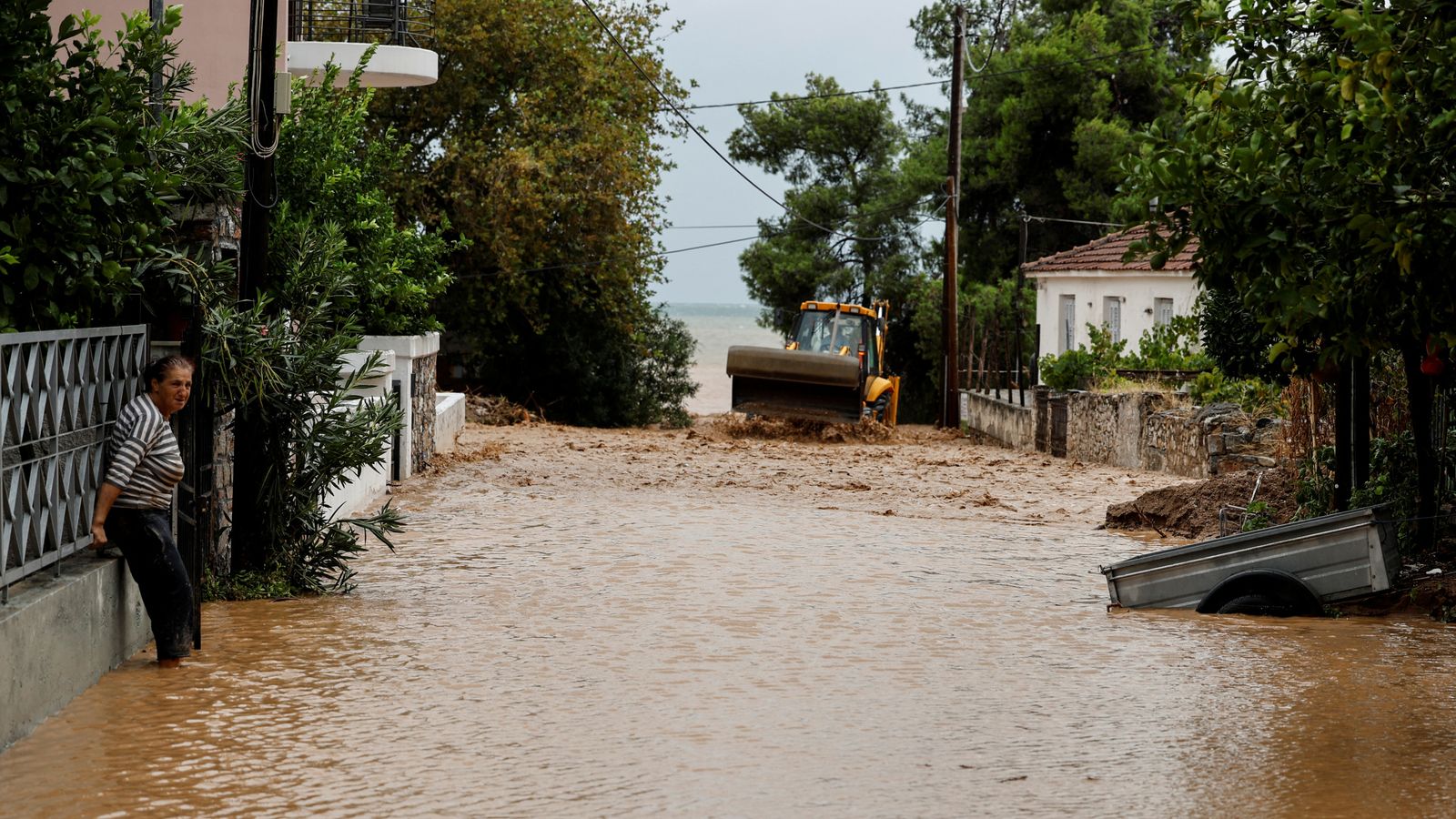Unless he’s recaptured quickly, the escape of terror suspect Daniel Khalife could trigger another political crisis for Rishi Sunak on top of the school concrete fiasco.
Labour is already on the attack and the new-ish justice secretary, Alex Chalk, who was appointed in April, will be under pressure to come to the Commons to answer accusations of government incompetence.
“The Conservatives need to urgently explain how they can’t do the basic job of keeping potentially dangerous criminals locked up,” the new shadow justice secretary Shabana Mahmood declared in a hard-hitting response to the escape.
“It’s right that the police are given space to recapture this suspect. But Rishi Sunak needs to ensure there is no wider risk because his zombie government lacks grip on the criminal justice system.”
Zombie government? Harsh. But whether or not a prison break-out can really be blamed on the government, it’s ministers who’ll get the flak from political opponents and critics of the prison system.
Ken Clarke says issue ‘came out of the blue’ – politics latest
There are strong similarities between this escape and that of two IRA remand prisoners, Pearse McAuley and Nessan Quinlivan, from Brixton prison in 1991 using a shotgun and holding a prison officer hostage.
UK to re-join EU’s Horizon science programme
PMQs: Sir Keir Starmer takes aim at Rishi Sunak saying ‘cowboys are running the country’ in school concrete crisis jibe
Concrete crisis and the Gillian Keegan rant
Back then, prisons were run by the Home Office, before they were transferred to the Ministry of Justice (MOJ) by Tony Blair in 2007 after his home secretary John Reid famously said his department was “not fit for purpose” in 2006.
Please use Chrome browser for a more accessible video player
The 1991 Brixton break-out plunged John Major’s home secretary Kenneth Baker into a political crisis, as he was hauled before the Commons to make a statement to MPs – the first of many – and faced accusations of incompetence and calls to resign.
In the Commons, Mr Baker was accused of ignoring recommendations by the then chief inspector of prisons, Judge Stephen Tumin, that Brixton prison was not suitable for prisoners on remand for terrorist offences because it wasn’t secure enough.
No doubt there will be claims from MPs that the same could be said of Wandsworth, a prison dating from Victorian times, and Mr Chalk will be challenged to explain why Khalife wasn’t in the high-security Belmarsh prison.
Read more:
Why wasn’t escaped terror suspect Khalife banged up in modern Belmarsh?
Some critics will also no doubt claim that the MOJ is now not fit for purpose, partly because since the Tories came to power in 2010 with David Cameron’s coalition government there have been 10 justice secretaries.
Please use Chrome browser for a more accessible video player
Those names in full: Kenneth Clarke, Chris Grayling, Michael Gove, Liz Truss, David Lidington, David Gauke, Sir Robert Buckland, Dominic Raab (twice), Brandon Lewis and now Mr Chalk.
Ten? Yes, that’s exactly the same number as there have been education secretaries over the same period. Coincidence? This week it’s the Department for Education that’s accused of blunders over its handling of crumbling concrete in schools.
Mr Chalk says he called a meeting with the Wandsworth governor after the escape to make sure “all necessary steps have been taken to secure the prison”. Bit late now, Mr Chalk!
He also says they discussed the investigation. That, obviously, is now for Scotland Yard, whose senior officers must be furious at what looks like a catalogue of blunders inside the prison.
How on earth did Khalife get his hands on a chef’s uniform? And how did he manage to attach himself and cling on to the underneath of a van undetected?
Finally, Mr Chalk says he’s receiving regular updates. So he should be!
To save himself and Mr Sunak’s government from further embarrassment, Mr Chalk will hope that one of his regular updates from the governor brings news that Khalife has been recaptured.








